1-Day Solo Sightseeing Adventure in Hamburg, Germany
Hamburg, Germany
1 days
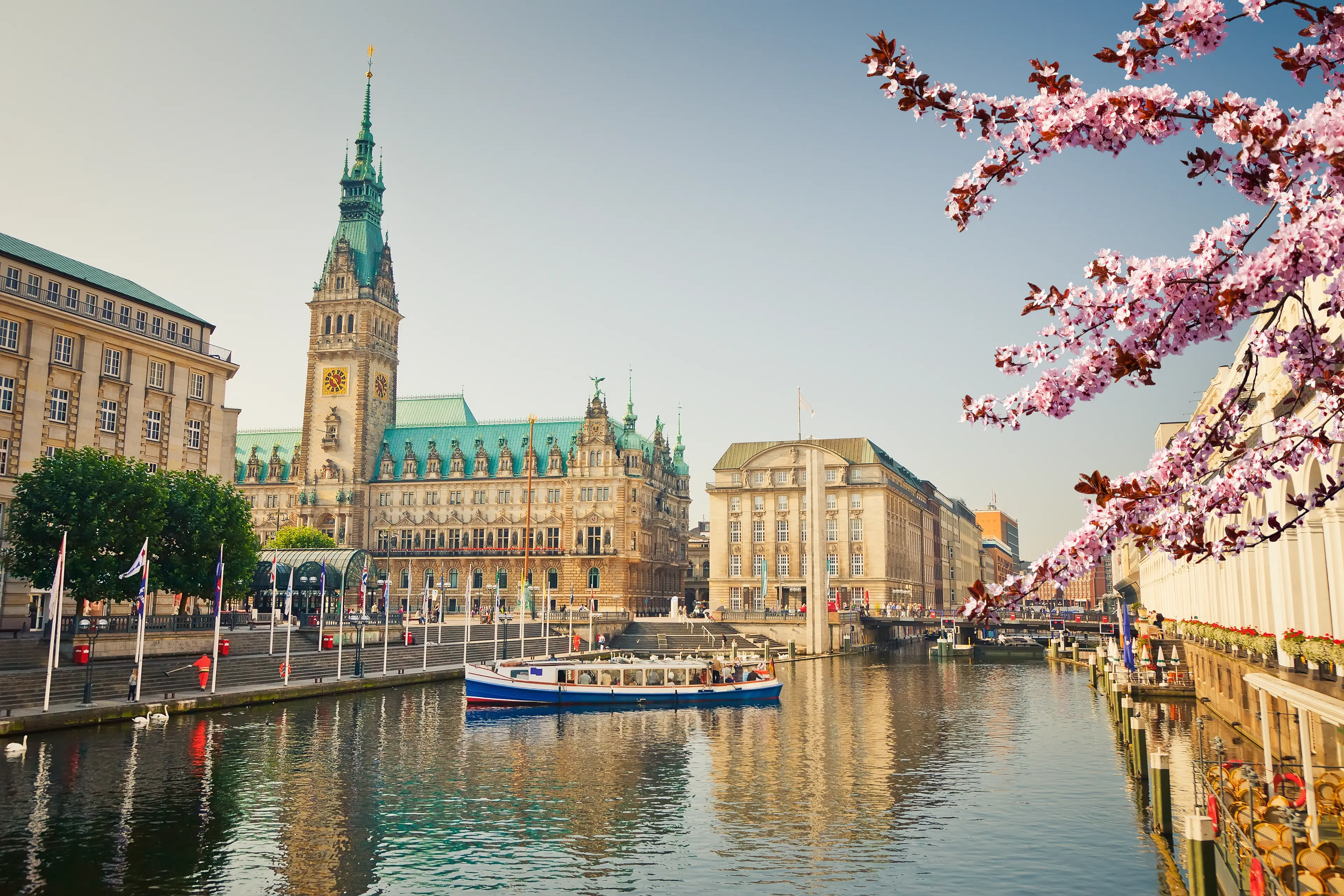

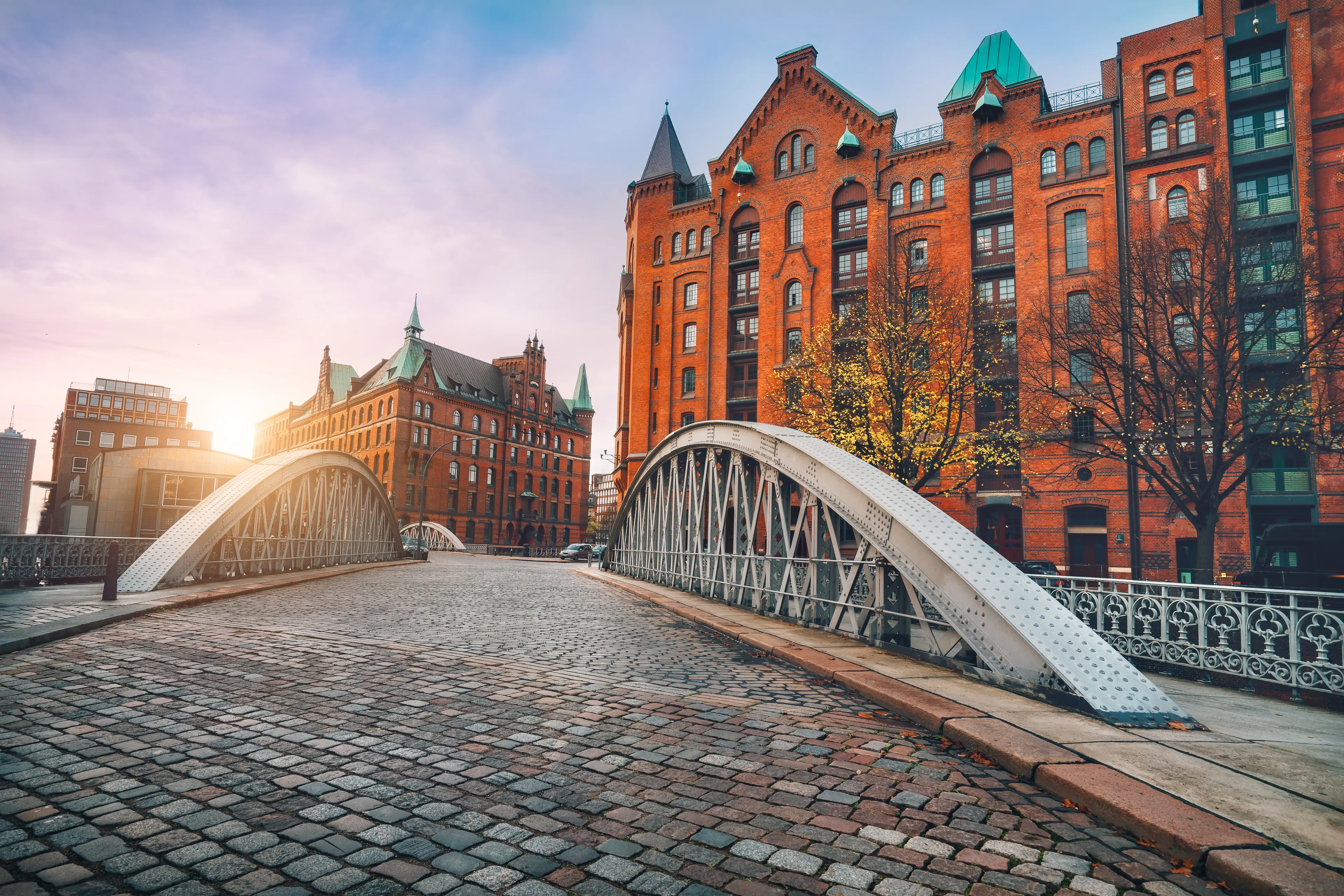
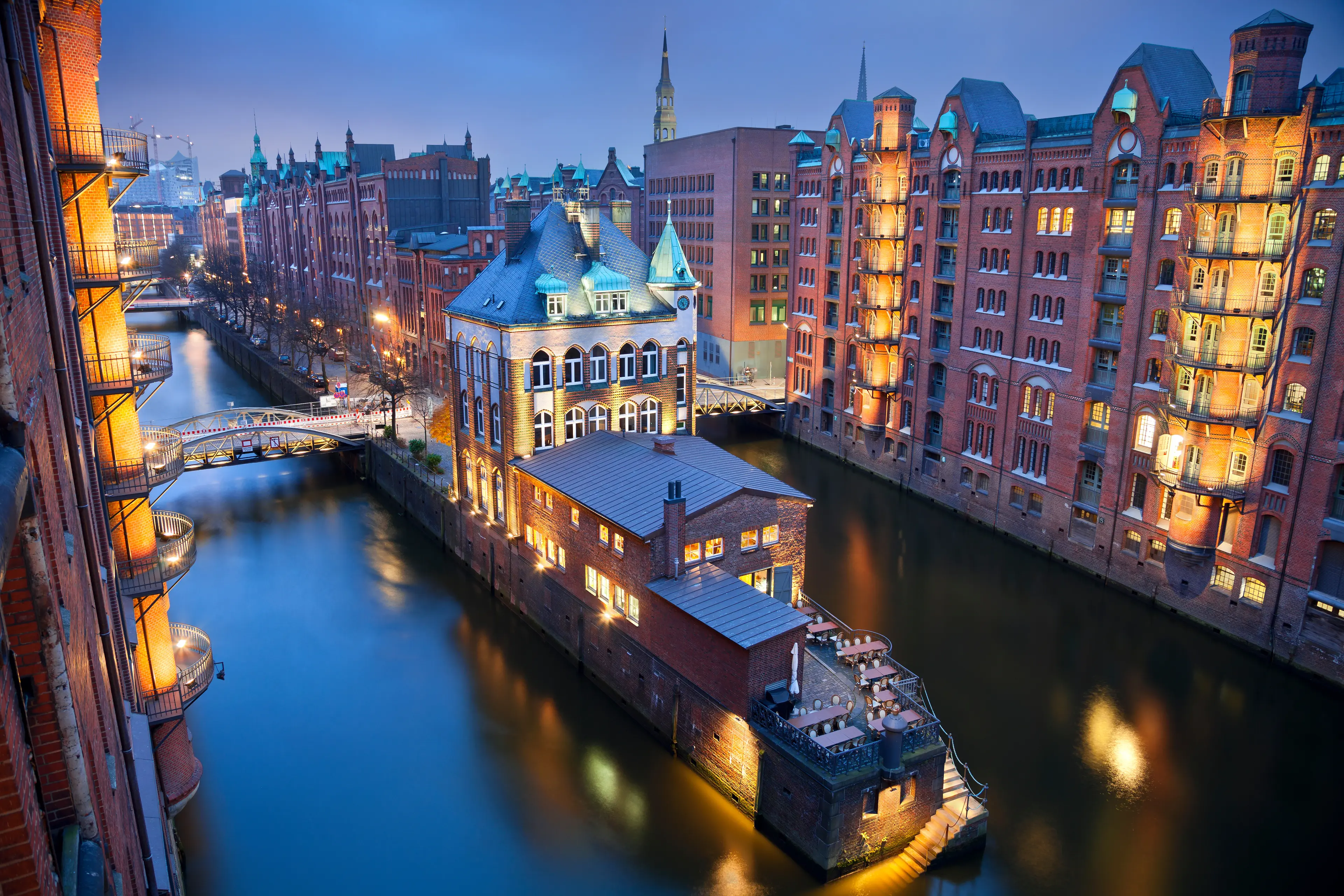
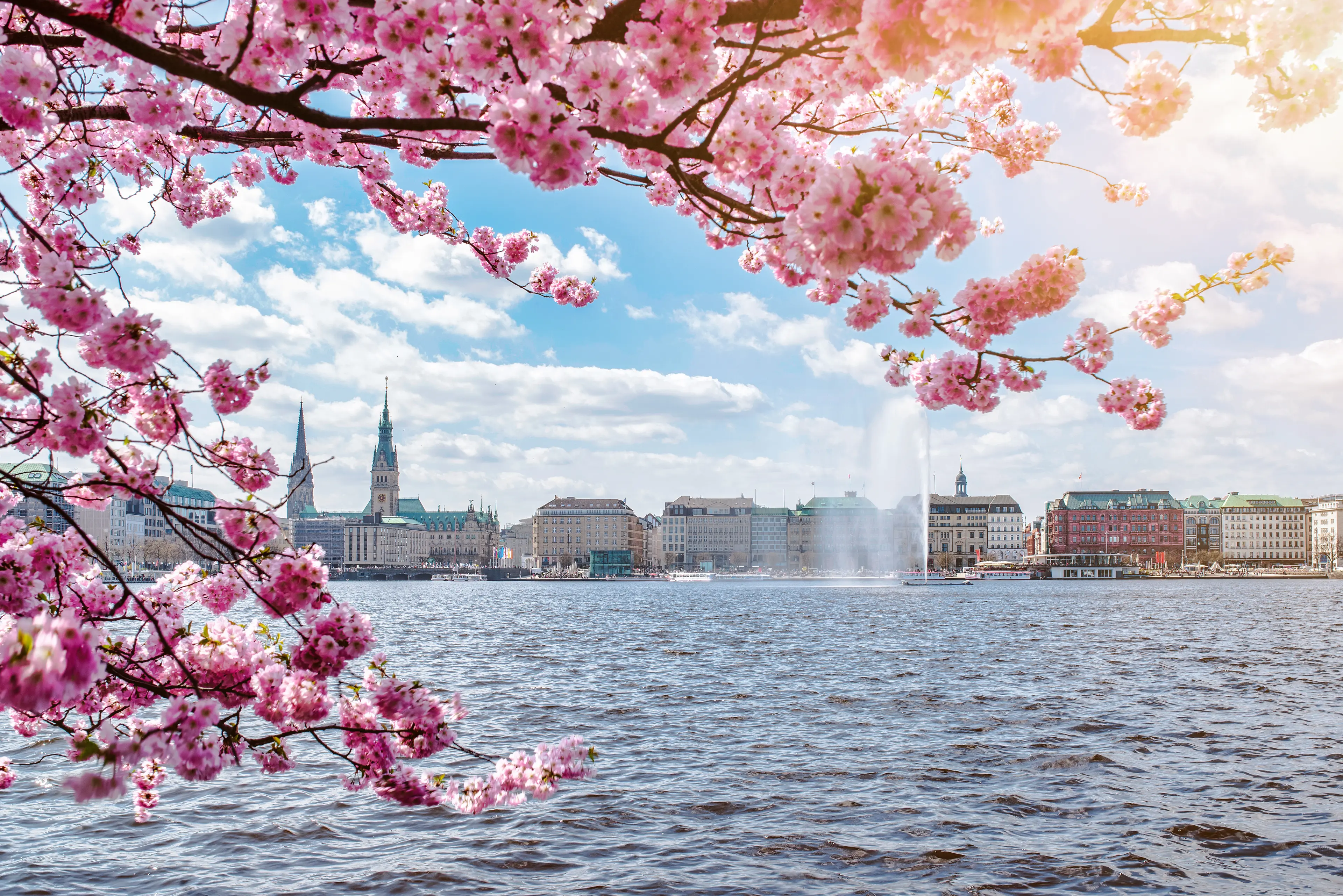
About Hamburg, Germany
Experience the vibrant city of Hamburg, Germany, a maritime metropolis known for its stunning architecture, rich history, and lively cultural scene. Explore the UNESCO World Heritage Speicherstadt, the world's largest warehouse district, and the futuristic Elbphilharmonie concert hall. Stroll along the bustling harbor, visit the famous Reeperbahn nightlife district, or relax in the beautiful Planten un Blomen park. Enjoy a boat tour on the Alster Lake and savor local delicacies at the historic Fischmarkt. With world-class museums, shopping, and dining, Hamburg offers a unique blend of old-world charm and modern sophistication. Whether you're a history buff, a foodie, or an art enthusiast, Hamburg has something for everyone.
1-Day Itinerary
Attractions in Itinerary (5)
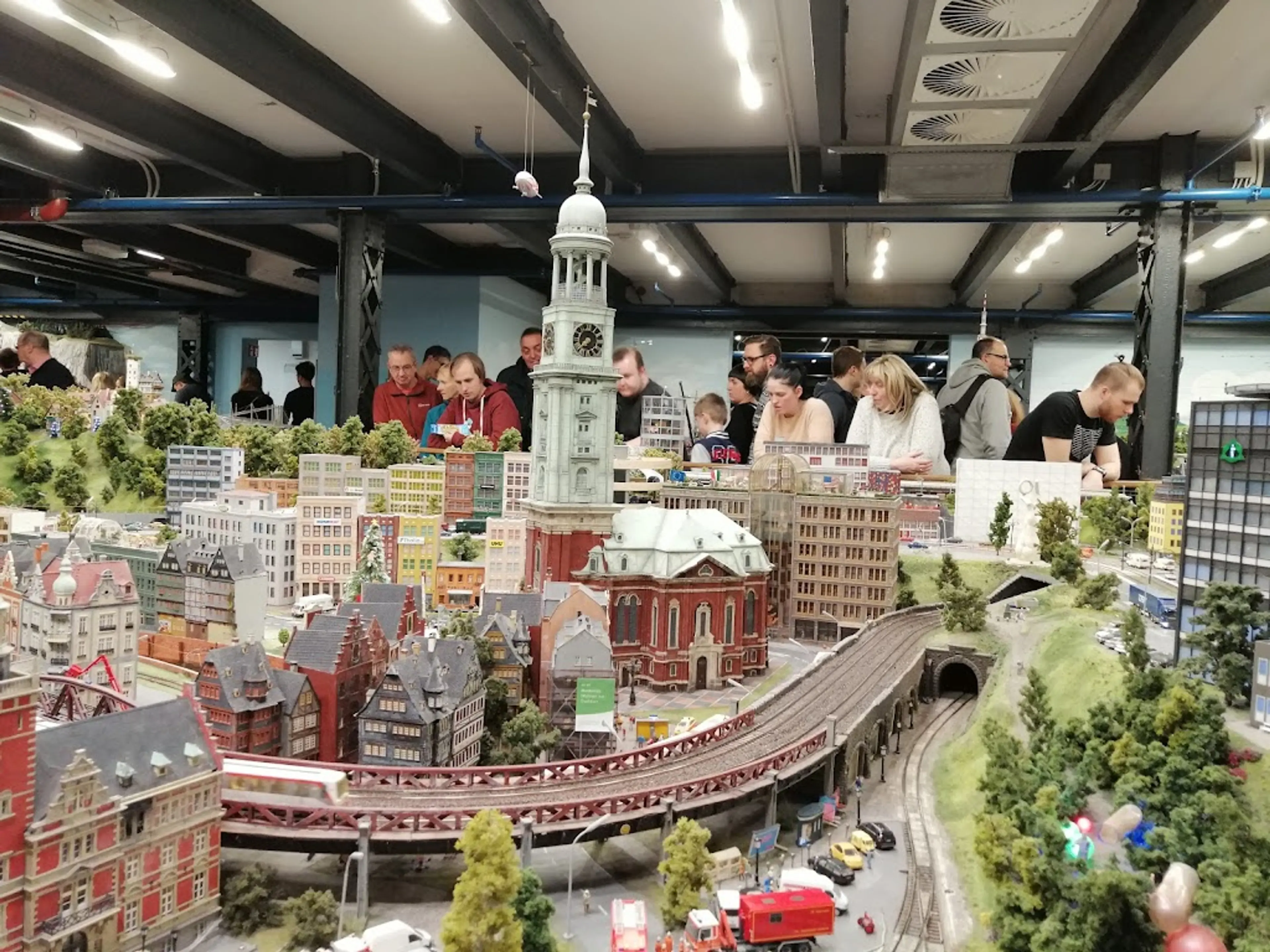
1Miniatur Wunderland
The world's largest model railway and miniature airport, attracting visitors of all ages.
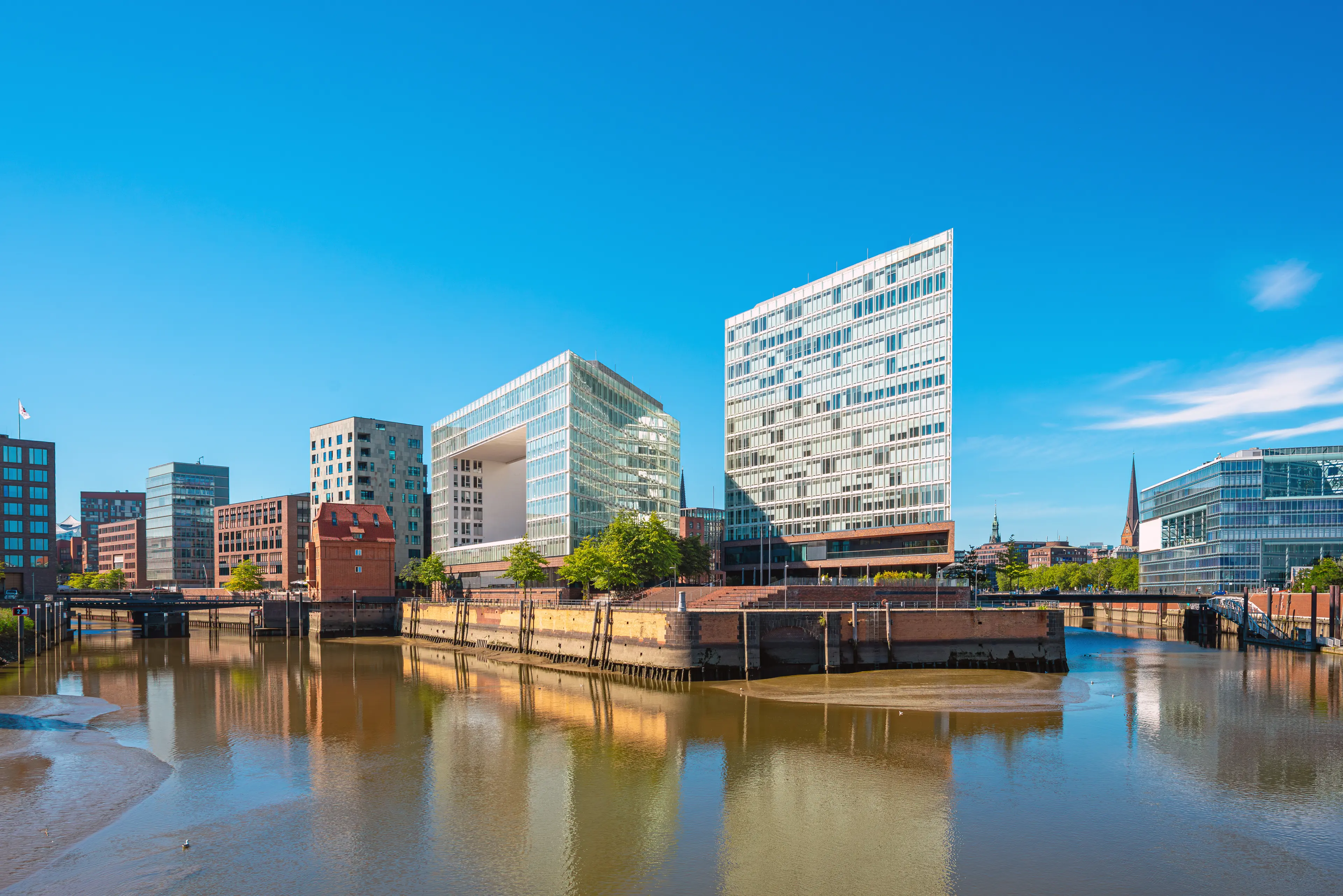
2HafenCity
A modern district known for its innovative architecture, including the Elbphilharmonie and the Marco Polo Tower.
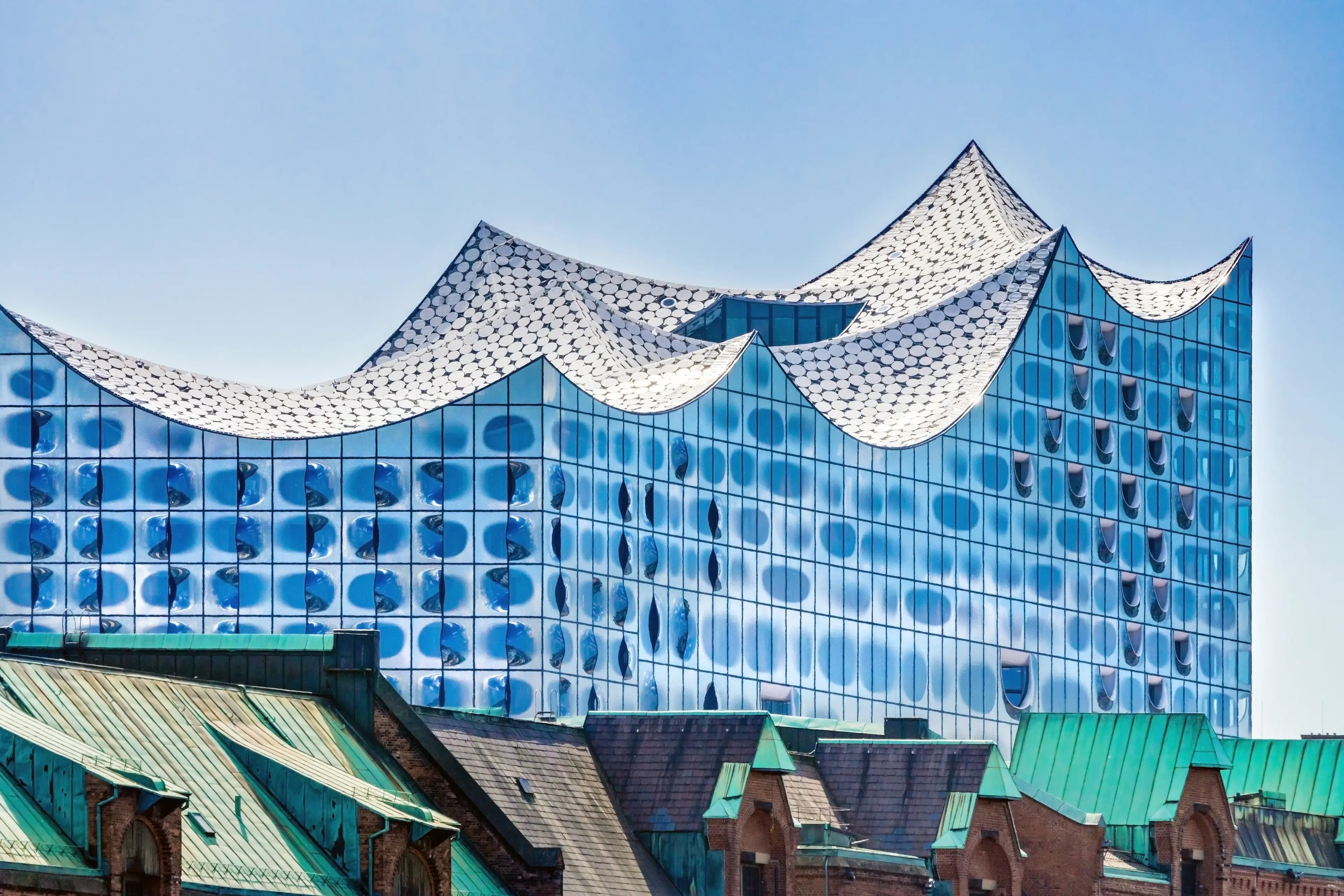
3Elbphilharmonie
A concert hall in the HafenCity quarter of Hamburg, known for its modern architecture and world-class acoustics.
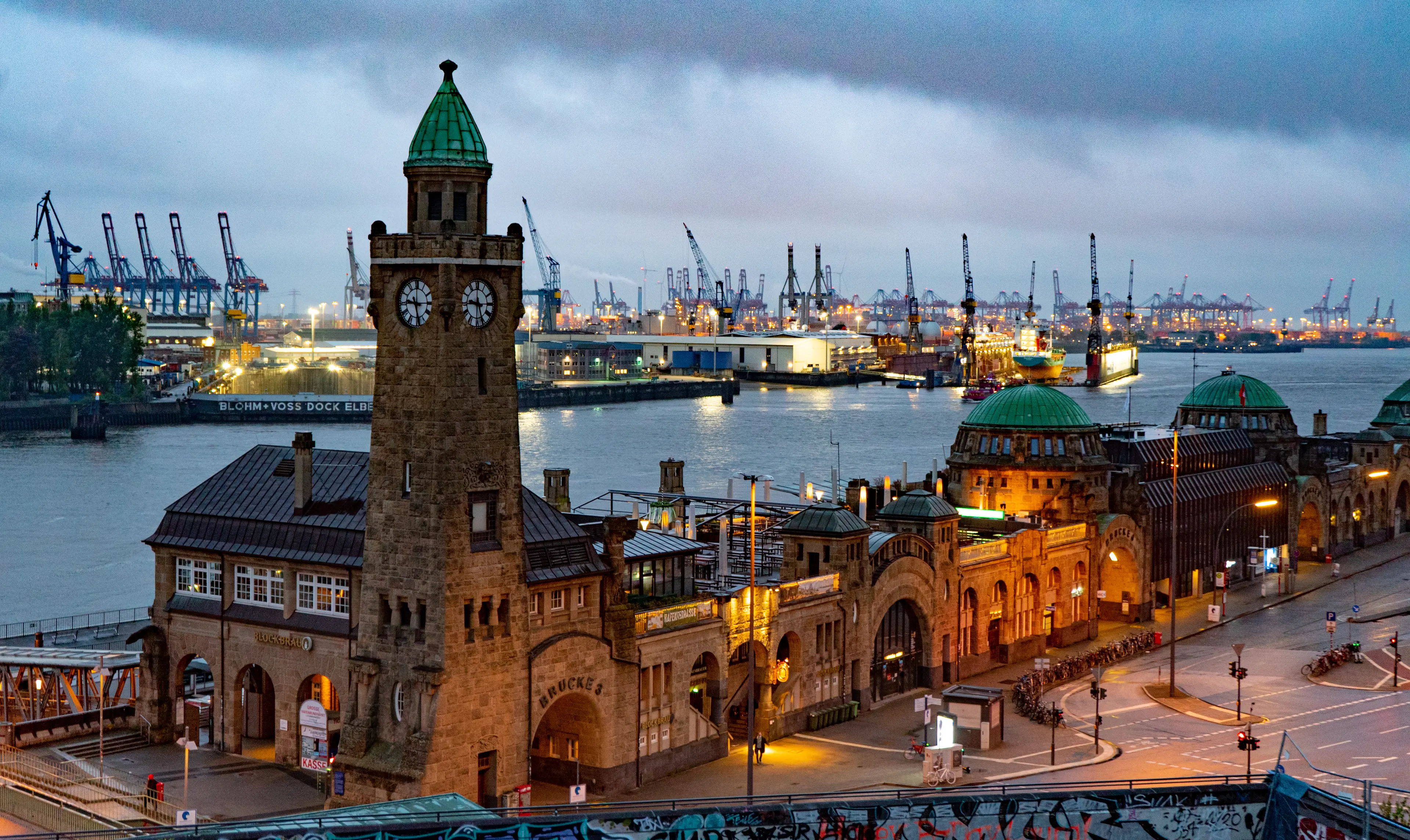
4St. Pauli
St. Pauli is a vibrant and diverse neighborhood known for its nightlife, entertainment venues, and cultural experiences. It's home to the famous Reeperbahn, a street lined with bars, clubs, and theaters. St. Pauli is also known for its football club, FC St. Pauli, and the Millerntor-Stadion where they play.
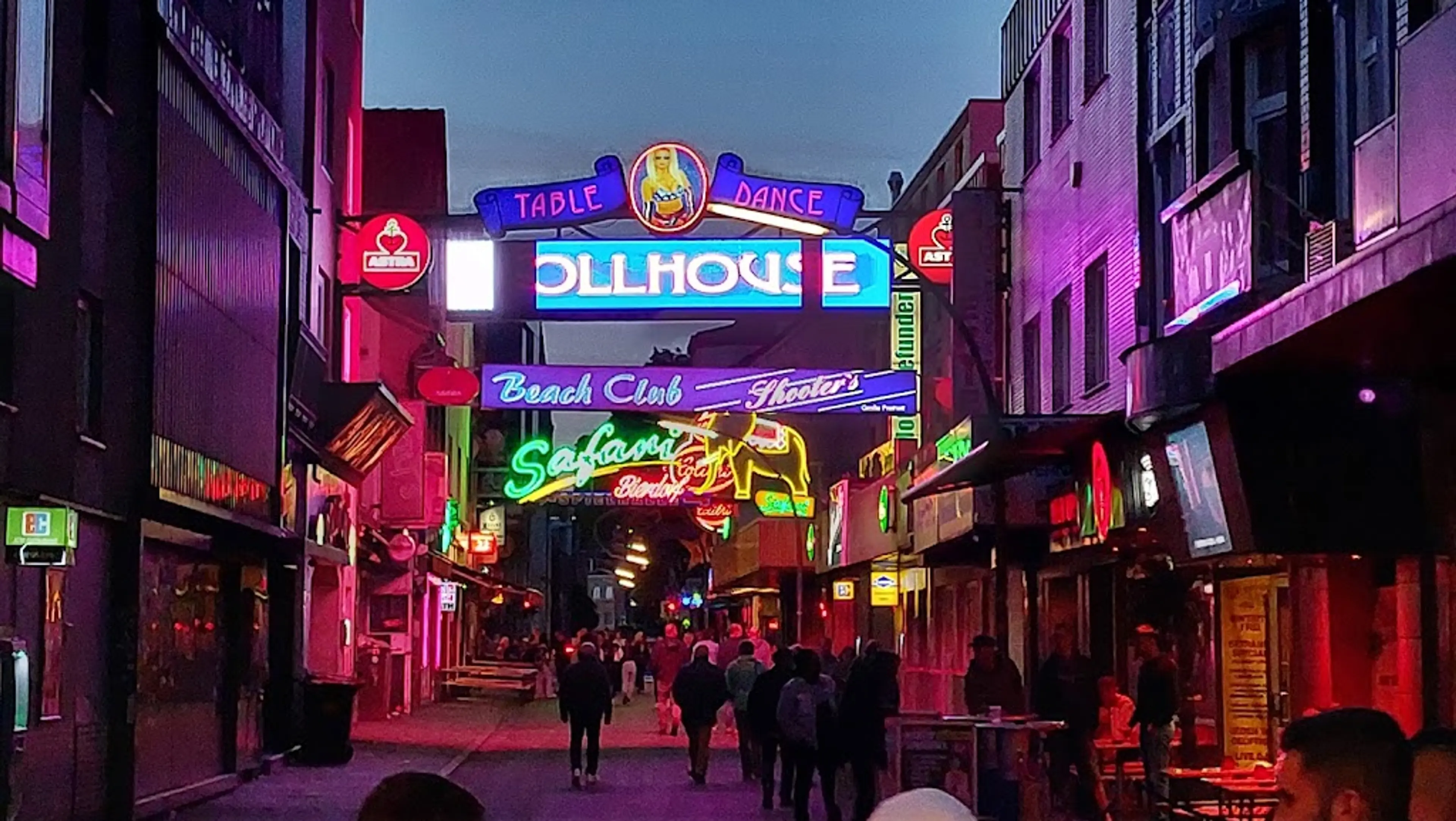
5Reeperbahn
Hamburg's famous entertainment and red-light district, featuring a wide range of bars, clubs, restaurants, and theaters.
Local Food and Drinks (10)

Fischbrötchen
A popular street food in Hamburg, Fischbrötchen is a sandwich made with fish, onions, pickles, and remoulade sauce. It reflects the city's close relationship with the sea.

Franzbrötchen
Franzbrötchen is a sweet, cinnamon-flavored pastry that is a local favorite in Hamburg. It's a testament to the city's love for baked goods.

Labskaus
A traditional sailor's dish, Labskaus is made from corned beef, onions, and potatoes, served with pickled beetroot and herring. It's a hearty meal that showcases Hamburg's maritime history.

Aalsuppe
Despite its name, which translates to 'eel soup', Aalsuppe is usually made without eel. It's a hearty soup with a variety of ingredients, reflecting the city's diverse food culture.

Hamburger Pannfisch
A traditional Hamburg dish, Hamburger Pannfisch is made from leftover fish fried with onions and potatoes. It's a delicious example of the city's sustainable cooking practices.

Birnen, Bohnen und Speck
This dish, whose name translates to 'pears, beans, and bacon', is a traditional North German meal. It's a unique combination of sweet and savory flavors that is typical of Hamburg's cuisine.

Rote Grütze
Rote Grütze is a popular dessert in Hamburg, made from red berries and served with cream or vanilla sauce. It's a sweet treat that showcases the region's fresh produce.

Alsterwasser
Named after the Alster Lake in Hamburg, Alsterwasser is a refreshing beer mixed with lemonade, similar to Radler. It's a popular summer drink in the city.

Currywurst
Currywurst is a popular street food in Hamburg, made from pork sausage topped with curry ketchup. It's a spicy, savory snack that is loved by locals and tourists alike.

Krabbenbrötchen
Krabbenbrötchen is a shrimp sandwich that is a popular snack in Hamburg. It's a delicious example of the city's seafood culture.
Best time to visit
The best time to visit Hamburg, Germany is during the late spring and early autumn months, specifically May through September. During this period, the weather is generally pleasant and warm, making it ideal for sightseeing and outdoor activities. The city also hosts numerous festivals and events during these months, adding to the overall tourist experience. However, if you're interested in visiting Christmas markets, late November to December would be the ideal time.
How to get around
Public Transportation
Hamburg has an extensive public transportation system consisting of buses, trains, and ferries. The Hamburg Card offers unlimited travel on public transportation and discounts at various attractions.
Ridesharing
Ridesharing services like Uber and Lyft are available in Hamburg. These services offer a convenient way to get around the city, especially if you're not familiar with the public transportation system.
Bicycle
Hamburg is a very bike-friendly city with numerous bike lanes and bike rental services. It's a great way to explore the city at your own pace.
Car Rental
Renting a car can be a good option if you plan to visit areas outside of Hamburg. However, parking can be difficult and expensive in the city center.
Taxi
Taxis are readily available in Hamburg and can be hailed on the street, at taxi stands, or booked via phone or app. They offer a convenient, though often more expensive, mode of transport.
Foot
Many of Hamburg's attractions are within walking distance of each other, especially in areas like the Altstadt (Old Town) and Speicherstadt (Warehouse District). Walking is a great way to explore the city and take in the sights.
Ferry
Hamburg's public transportation system includes ferry services along the Elbe River. These ferries offer a unique way to see the city and can be a convenient way to reach certain destinations.
Train
Hamburg is well-connected by train to other German cities and European destinations. Within the city, the S-Bahn (suburban train) and U-Bahn (underground train) networks are efficient ways to get around.
Bus
Buses are a part of Hamburg's public transportation system and they cover routes that are not served by trains. Night buses are also available when the trains stop running.
Scooter
Electric scooters are available for rent throughout the city. They offer a fun and quick way to get around, especially for short distances.
Important information
Currency€ EUR
Time zoneUTC+1
Driving sideRight
Emergency phoneAmbulance and Fire: 112; Police: 110
Drinking waterYes
Power sockets
Voltage230 V
Things to know about Hamburg, Germany as a first time visitor
1
Hamburg is Germany's second-largest city, so be prepared for a bustling urban environment.
2
The city is known for its unpredictable weather, so pack a variety of clothing suitable for both warm and cold temperatures.
3
Hamburg is a very bike-friendly city, with numerous bike rental stations and dedicated bike lanes.
4
The city's public transportation system is efficient and extensive, including buses, trains, and ferries.
5
Hamburg is a port city, so seafood is a staple in local cuisine. Don't miss out on trying some fresh fish dishes.
6
The city is generally safe, but like any major city, it's important to stay aware of your surroundings, especially at night.
7
Most people in Hamburg speak English, but learning a few basic German phrases can be helpful.
8
The city is known for its vibrant nightlife, with many bars, clubs, and live music venues.
9
Hamburg is a green city with many parks and open spaces, perfect for relaxing or picnicking.
10
The city is also known for its architecture, with a mix of historic and modern buildings.
11
Tipping is customary in Hamburg. It's common to round up the bill or tip around 10% in restaurants.
12
Hamburg has a large shopping scene, from high-end boutiques to vintage shops and markets.
13
The city is very pedestrian-friendly, with many areas only accessible by foot.
14
Credit cards are widely accepted, but it's a good idea to carry some cash as some smaller establishments may not accept cards.
15
Smoking is banned in public places in Hamburg, but there are designated smoking areas.
16
Hamburg has a strong coffee culture, with many local coffee shops and roasteries.
17
The city is in the Central European Time Zone (CET), which is 6 hours ahead of Eastern Standard Time (EST).
18
Hamburg's tap water is safe to drink and of high quality.
19
The city has a strong commitment to sustainability, with many eco-friendly initiatives and options.
20
Hamburg has a rich history and culture, so consider taking a guided tour to learn more about the city's past and present.
Basic German to know as a first time visitor
English phrase | Native phrase | Pronunciation | When to use it |
|---|---|---|---|
Hello | Hallo | ha-lo | Greeting someone |
Goodbye | Auf Wiedersehen | owf vee-der-zayn | Saying goodbye |
Please | Bitte | bit-te | Making a request |
Thank you | Danke | dahn-ke | Expressing gratitude |
Yes | Ja | ya | Agreeing or confirming |
No | Nein | nine | Disagreeing or denying |
Excuse me | Entschuldigung | ent-shool-dee-goong | Getting attention or apologizing |
I don't understand | Ich verstehe nicht | ish fer-shtay-uh nikht | When you don't understand something |
Do you speak English? | Sprechen Sie Englisch? | shprek-en zee eng-lish | Asking if someone speaks English |
I'm sorry | Es tut mir leid | es toot meer lite | Apologizing |
Where is...? | Wo ist...? | vo ist | Asking for directions |
Bathroom | Toilette | toi-let-te | Looking for a bathroom |
Help | Hilfe | hil-fe | In case of emergency |
Food | Essen | ess-en | Looking for a place to eat |
Water | Wasser | vas-ser | Asking for water |
Beer | Bier | beer | Ordering a beer |
Wine | Wein | vine | Ordering wine |
Check, please | Die Rechnung, bitte | dee reck-noong bit-te | Asking for the bill |
How much does it cost? | Wie viel kostet das? | vee feel kos-tet das | Asking for the price |
Good night | Gute Nacht | goo-te nakht | Saying goodnight |
Packing List
Clothing
Comfortable walking shoes
Lightweight jacket
Umbrella or raincoat
Sunglasses
Comfortable pants or shorts
T-shirts
Underwear and socks
Toiletries
Travel-sized toothpaste
Toothbrush
Travel-sized shampoo and conditioner
Deodorant
Razor
Travel-sized body wash or soap
Travel-sized lotion
Sunscreen
Lip balm
Hand sanitizer
Travel documents and essentials
Passport
Driver's license or ID card
Credit and debit cards
Cash in local currency
Health insurance card
Travel itinerary
Hotel reservation details
Emergency contact information
Electronics and gadgets
Smartphone
Charger for smartphone
Power bank
Headphones
Camera
Memory card for camera
Travel adapter
Miscellaneous items
Snacks
Water bottle
Travel guidebook for Hamburg
Map of Hamburg
Travel pillow
Earplugs
Eye mask
First-aid kit
Reusable shopping bag
Weather Conditions
Hamburg, Germany, experiences a temperate seasonal climate, with moderate to heavy rainfall throughout the year. Here are some weather-related guidance and tips for your visit: 1. Layer Up: Hamburg's weather can be quite unpredictable. It's always a good idea to dress in layers, so you can adjust to the changing conditions. 2. Rain Gear: Given the city's high precipitation levels, carrying an umbrella or a waterproof jacket is advisable. 3. Winter Visits: If you're visiting in winter, temperatures can drop to 32°F (0°C), so pack warm clothing, including hats, scarves, and gloves. 4. Summer Visits: Summers are generally mild, with temperatures around 72°F (22°C). However, it can occasionally get hotter, so pack some light clothing as well. 5. Footwear: Regardless of the season, comfortable and waterproof shoes are recommended due to the city's cobblestone streets and unpredictable weather. 6. Sun Protection: Despite the city's often cloudy weather, the sun can be strong when it does appear. Don't forget to pack sunglasses, a hat, and sunscreen. 7. Windy Weather: Hamburg can be quite windy, especially near the harbor. A windproof jacket can be a good addition to your luggage. Remember, the weather can change quickly in Hamburg, so it's always a good idea to check the forecast regularly during your stay. Enjoy your visit!
| Month | Hi / Lo (°C) | Weather Overview |
|---|---|---|
January | 5° / -2° | January is the coldest month in Hamburg, with temperatures often dropping below freezing. It's also a relatively dry month, with occasional snowfall. |
February | 6° / -1° | February is still quite cold, with temperatures slightly higher than January. Snowfall is less likely, but still possible. |
March | 11° / 1° | March sees the start of spring, with temperatures beginning to rise. However, it can still be quite chilly, especially in the early part of the month. |
April | 15° / 4° | April is a relatively mild month, with temperatures continuing to rise. Rainfall is more common, so be prepared for wet weather. |
May | 20° / 8° | May is a pleasant month to visit Hamburg, with temperatures often reaching 20 degrees Celsius. It's also one of the sunniest months of the year. |
June | 23° / 11° | June marks the start of summer, with warm temperatures and long days. It's a great time to explore the city's parks and outdoor attractions. |
July | 25° / 13° | July is the warmest month in Hamburg, with temperatures often reaching 25 degrees Celsius. It's a popular time for tourists, so expect the city to be busy. |
August | 24° / 13° | August is another warm month, although temperatures can be slightly lower than July. It's also one of the wettest months of the year, so pack an umbrella. |
September | 20° / 10° | September sees the start of autumn, with temperatures beginning to drop. However, it's still a pleasant time to visit, with fewer tourists and plenty of events. |
October | 15° / 6° | October can be quite chilly, with temperatures often dropping to single digits. It's also a relatively wet month, so be prepared for rain. |
November | 10° / 3° | November is a cold month, with temperatures often dropping below 10 degrees Celsius. It's also one of the darkest months of the year, with short days and long nights. |
December | 6° / 0° | December is a festive month in Hamburg, with Christmas markets and holiday events. However, it's also one of the coldest months, so pack warm clothing. |
Did you know?
Places near by Hamburg, Germany
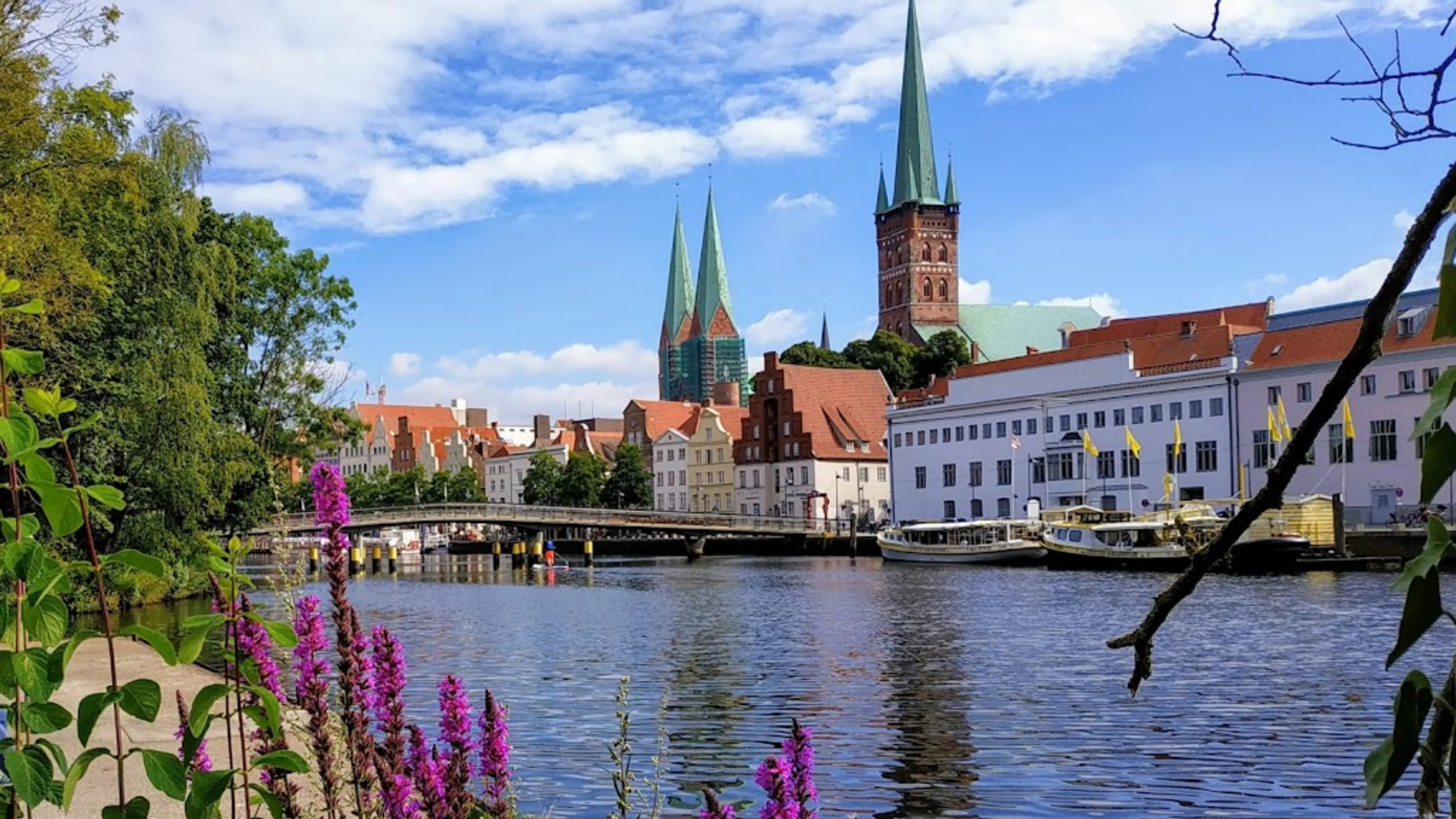
Lübeck
A city known for its brick Gothic architecture and the Holstentor, a medieval city gate.
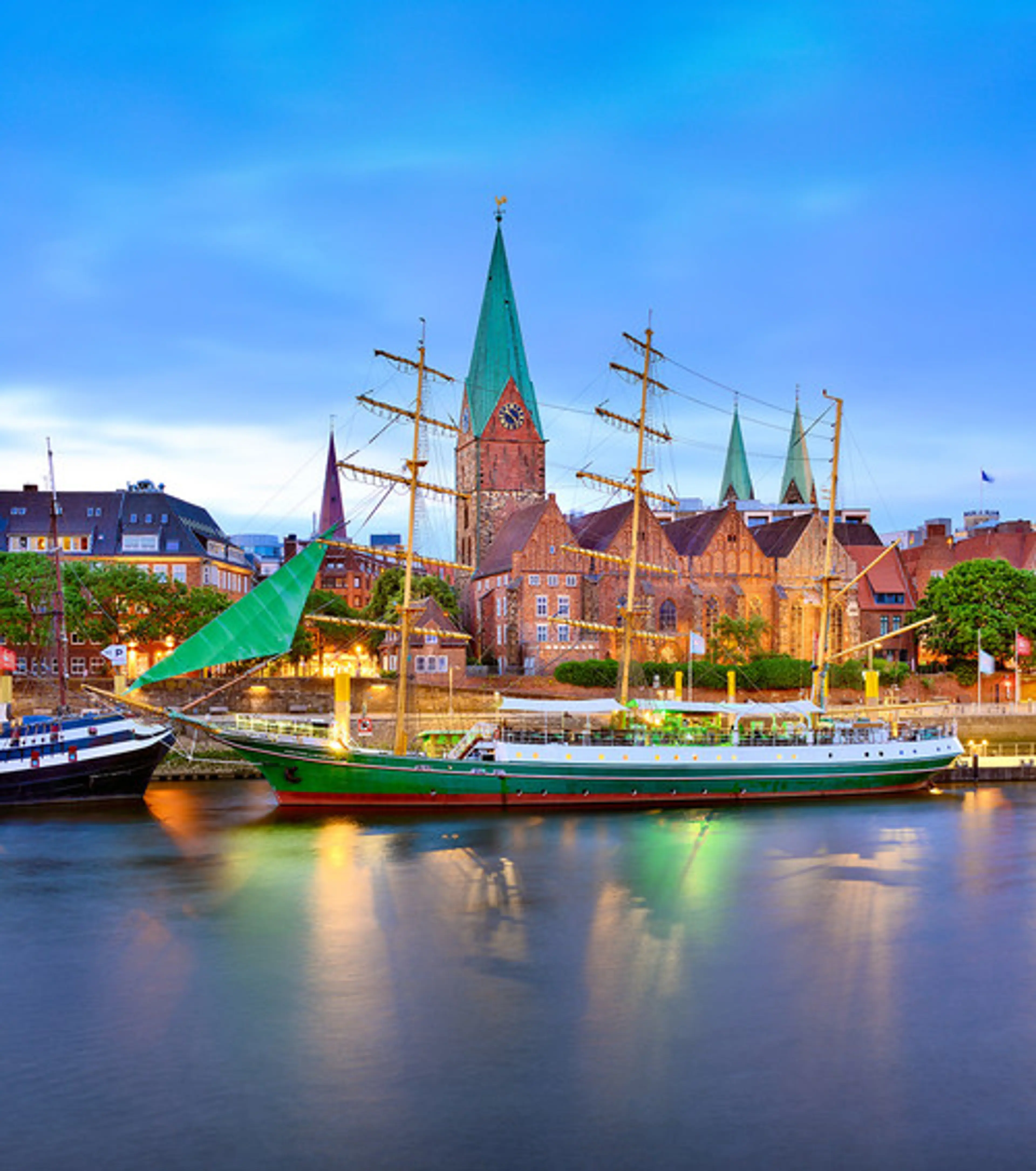
Bremen
A city with a rich history that dates back to the 8th century, known for its market square and the Bremen Town Musicians.
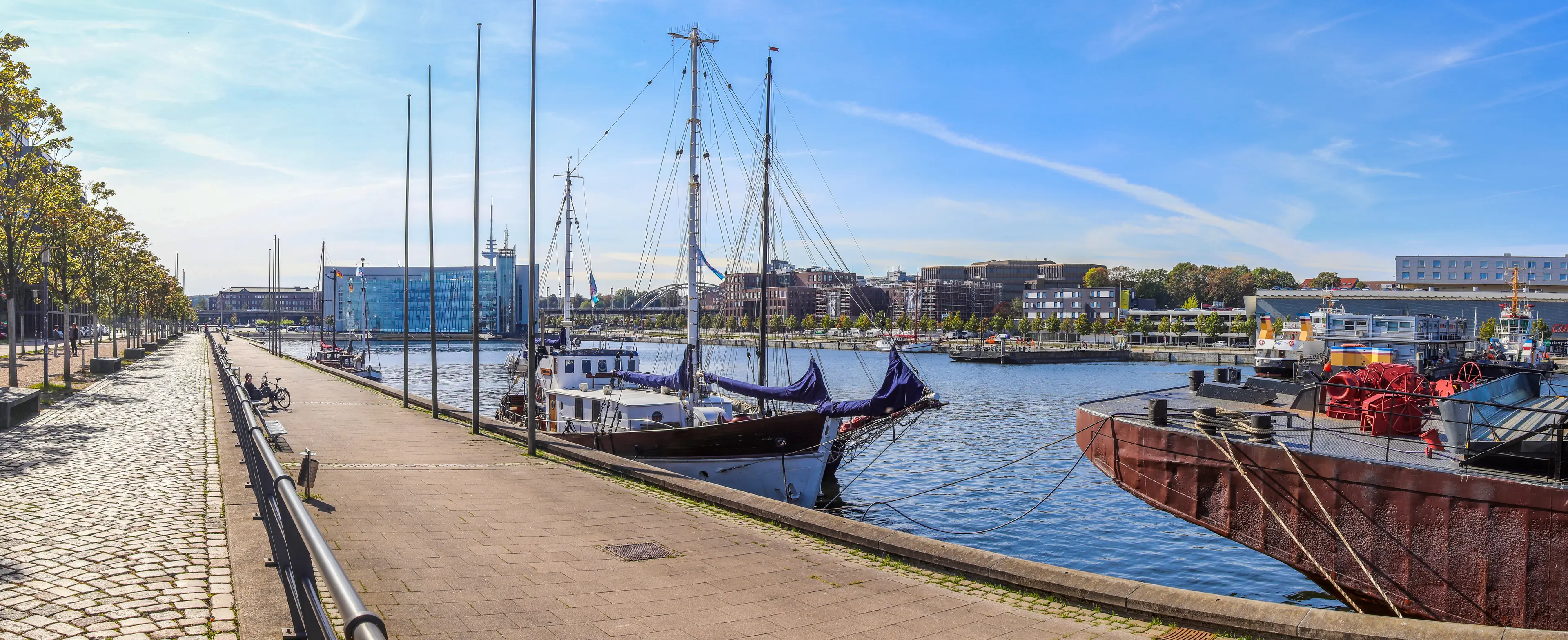
Kiel
A maritime city known for its sailing events and the Kiel Canal, one of the world's busiest artificial waterways.
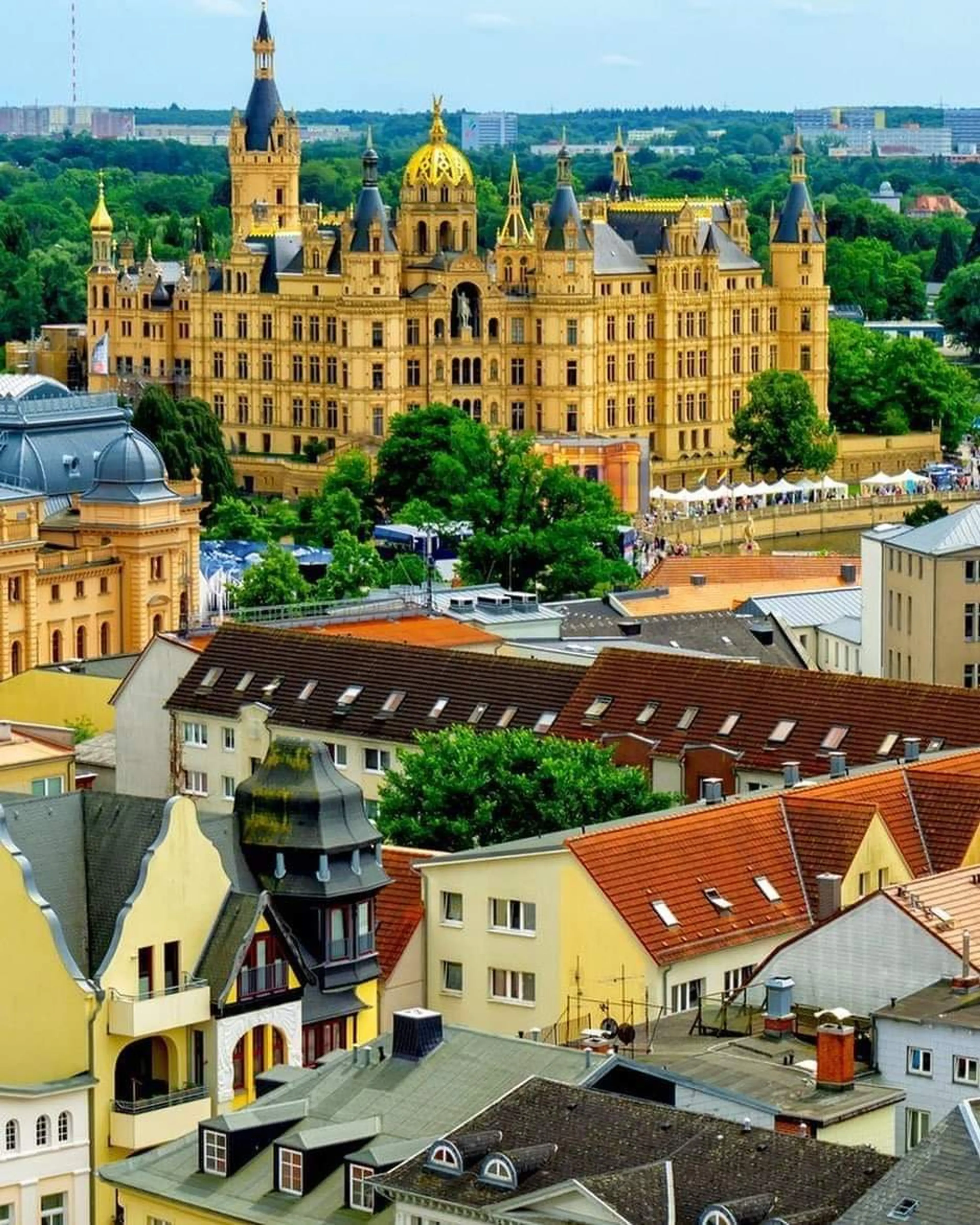
Schwerin
Known for the Schwerin Castle, located on an island in the city's main lake.
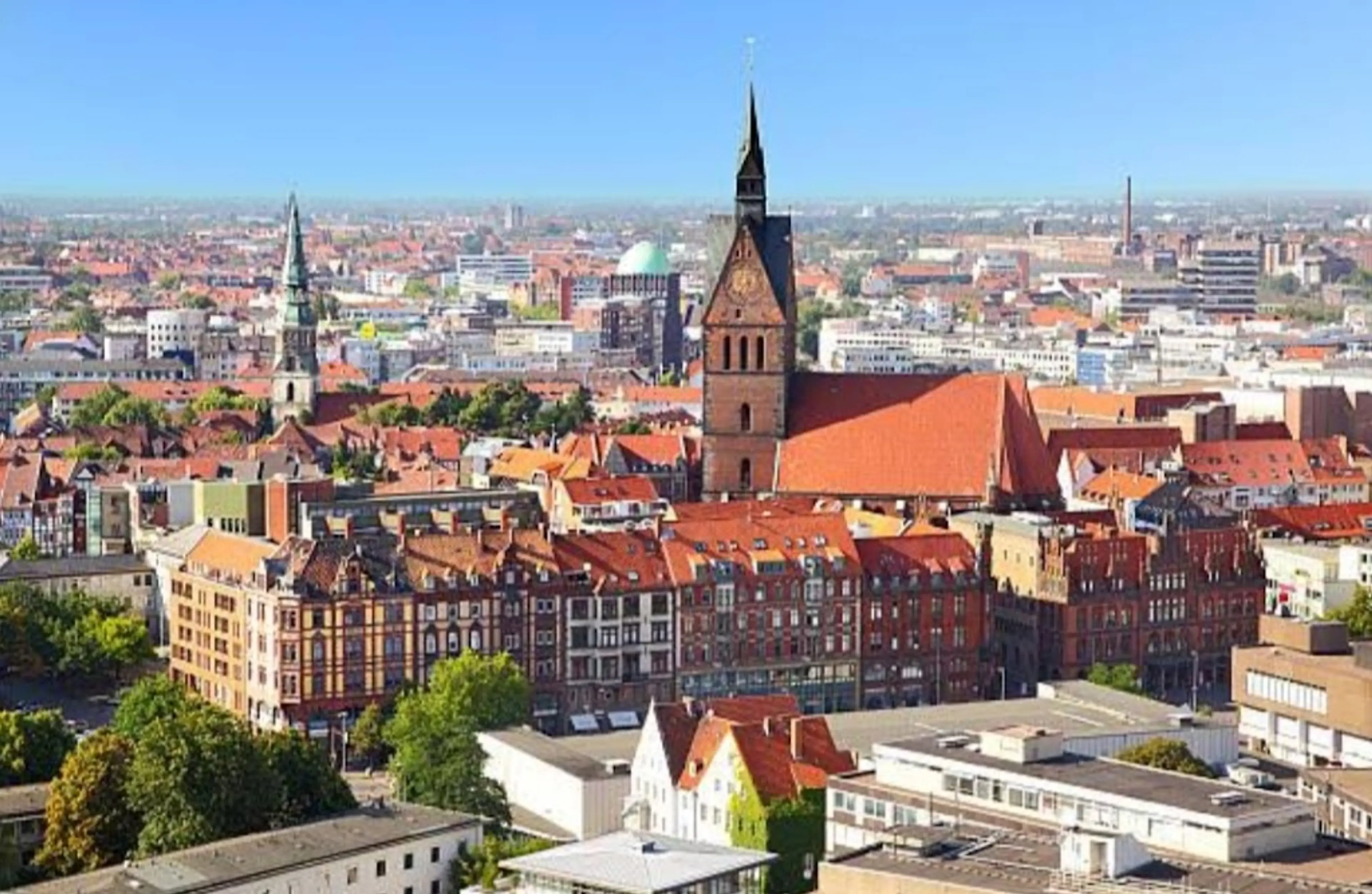
Hannover
A city known for its large green spaces and the Herrenhausen Gardens.
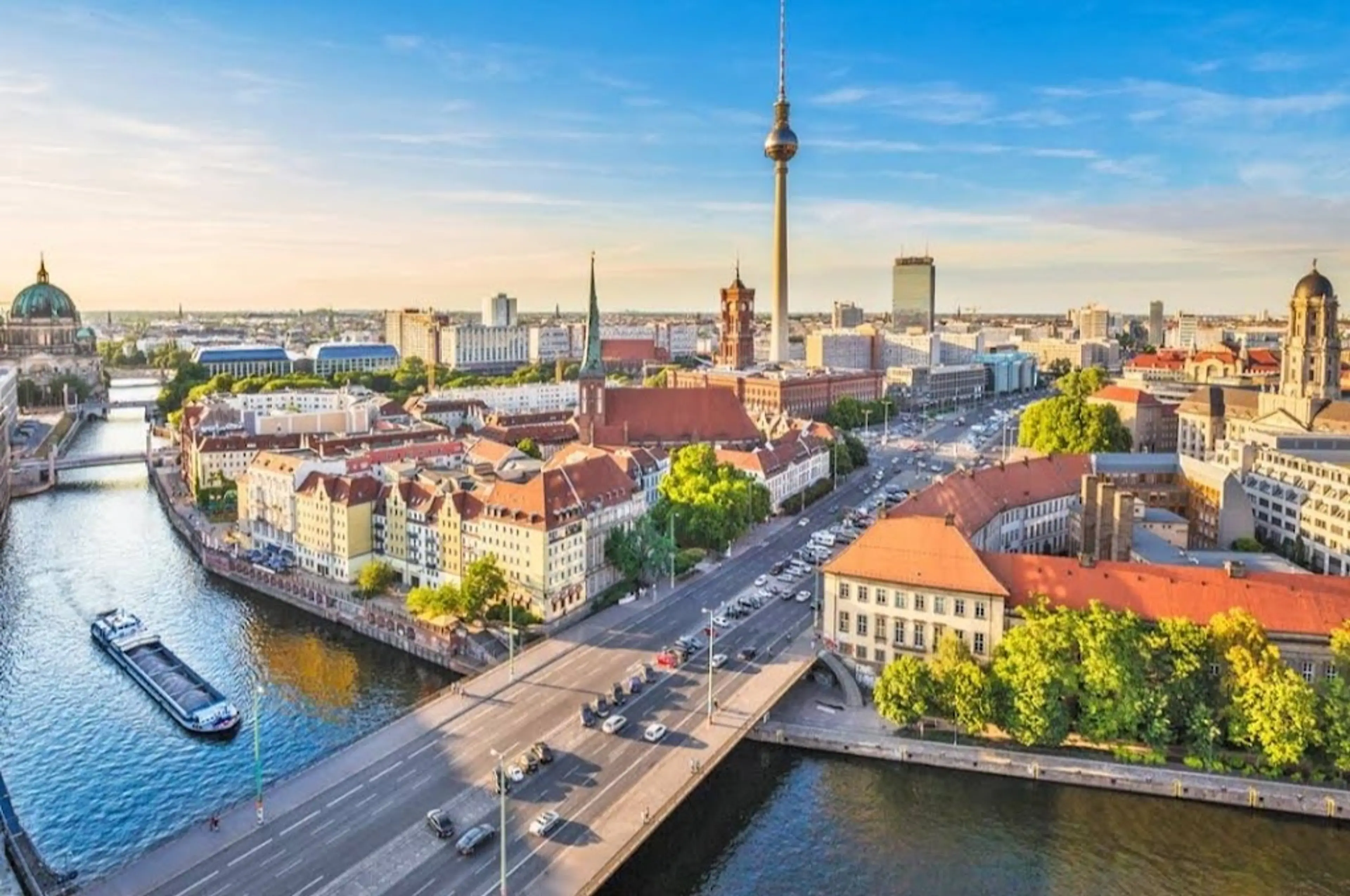
Berlin
The capital of Germany, known for its art scene, modern landmarks like the Berliner Fernsehturm and historic sites like the Brandenburg Gate.
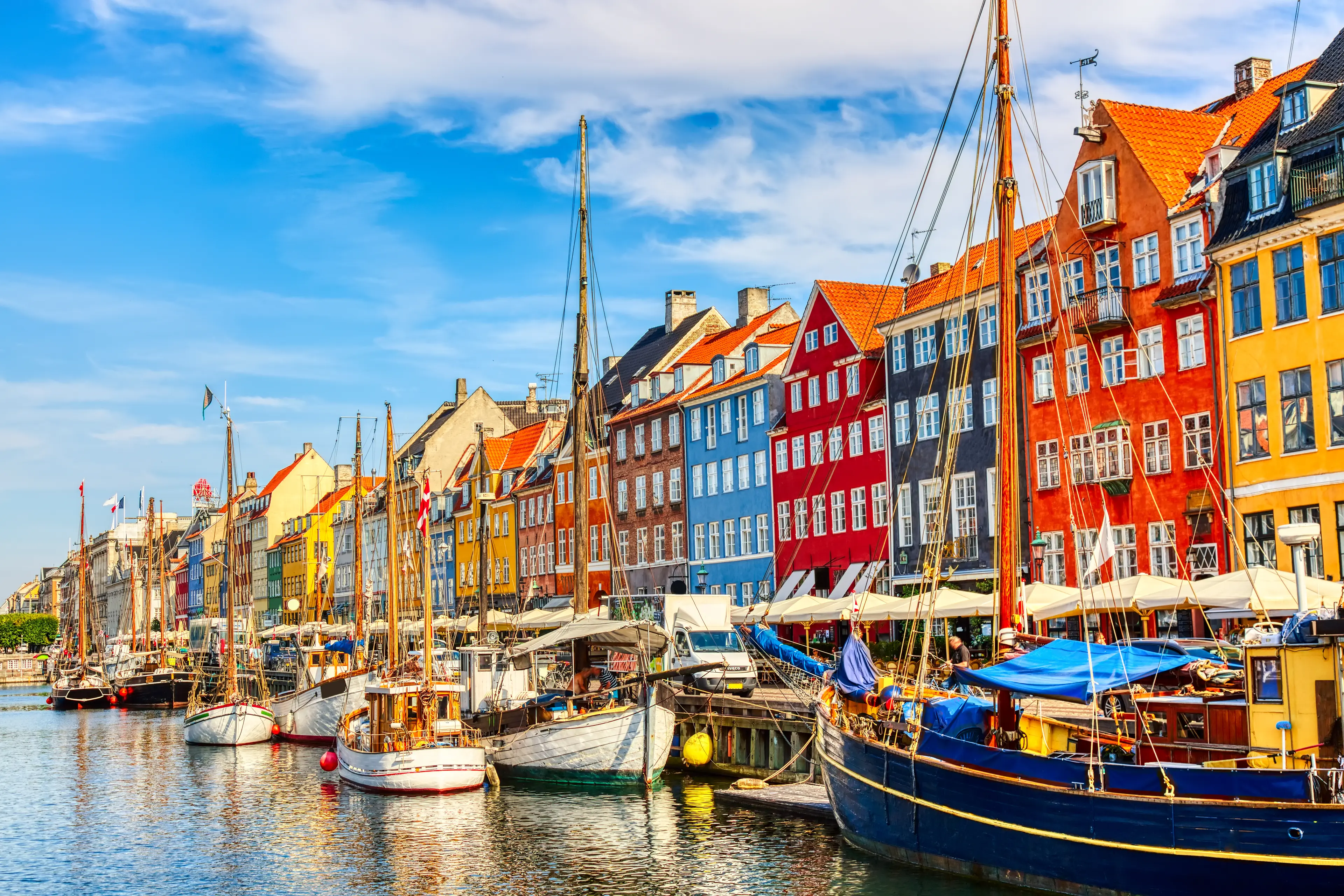
Copenhagen
The capital of Denmark, known for its historic sites like the Amalienborg Palace and modern architecture like the Opera House.
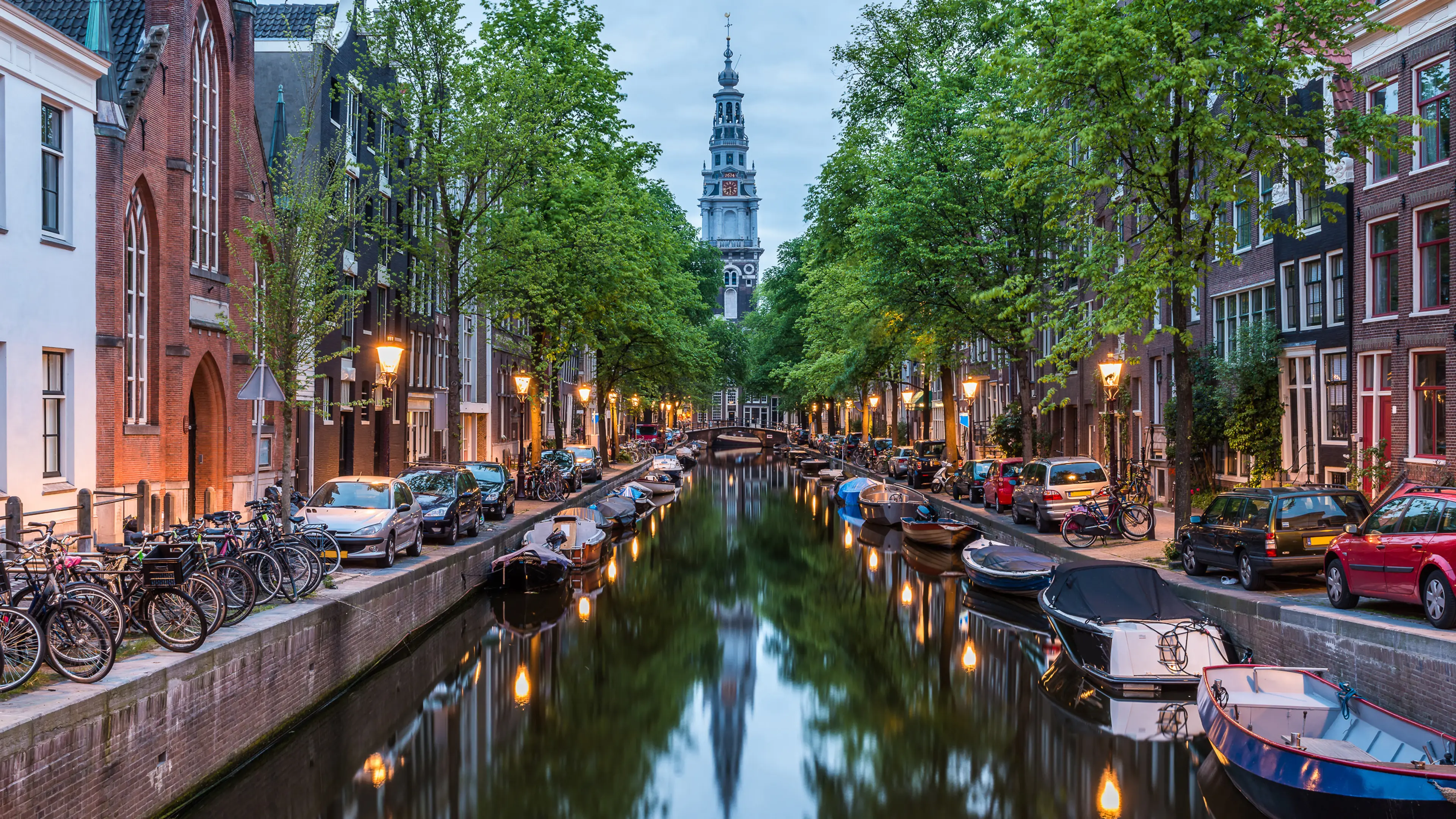
Amsterdam
The capital of the Netherlands, known for its artistic heritage, elaborate canal system and narrow houses with gabled facades.
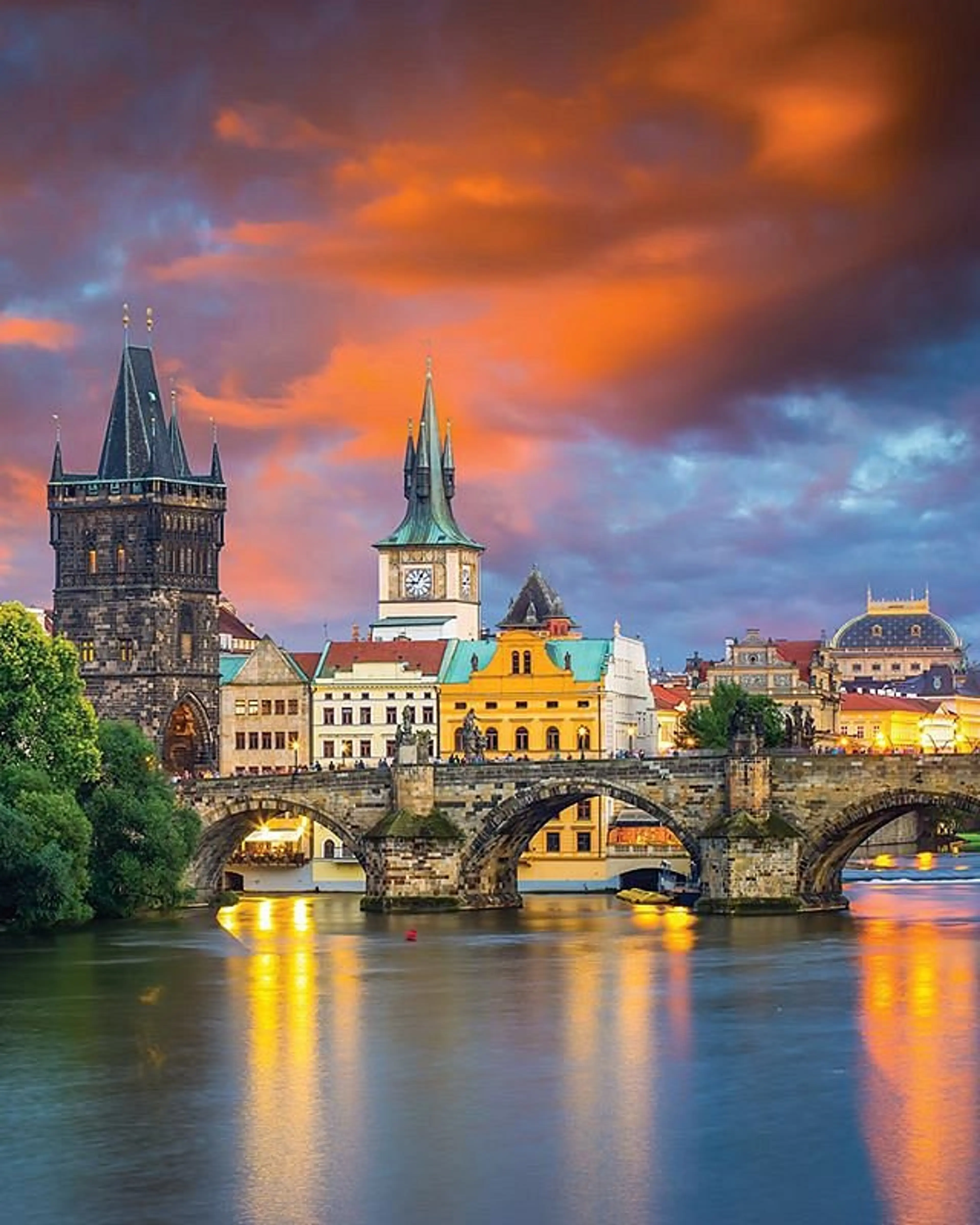
Prague
The capital of the Czech Republic, known for its Old Town Square, historic attractions like Prague Castle and Charles Bridge.
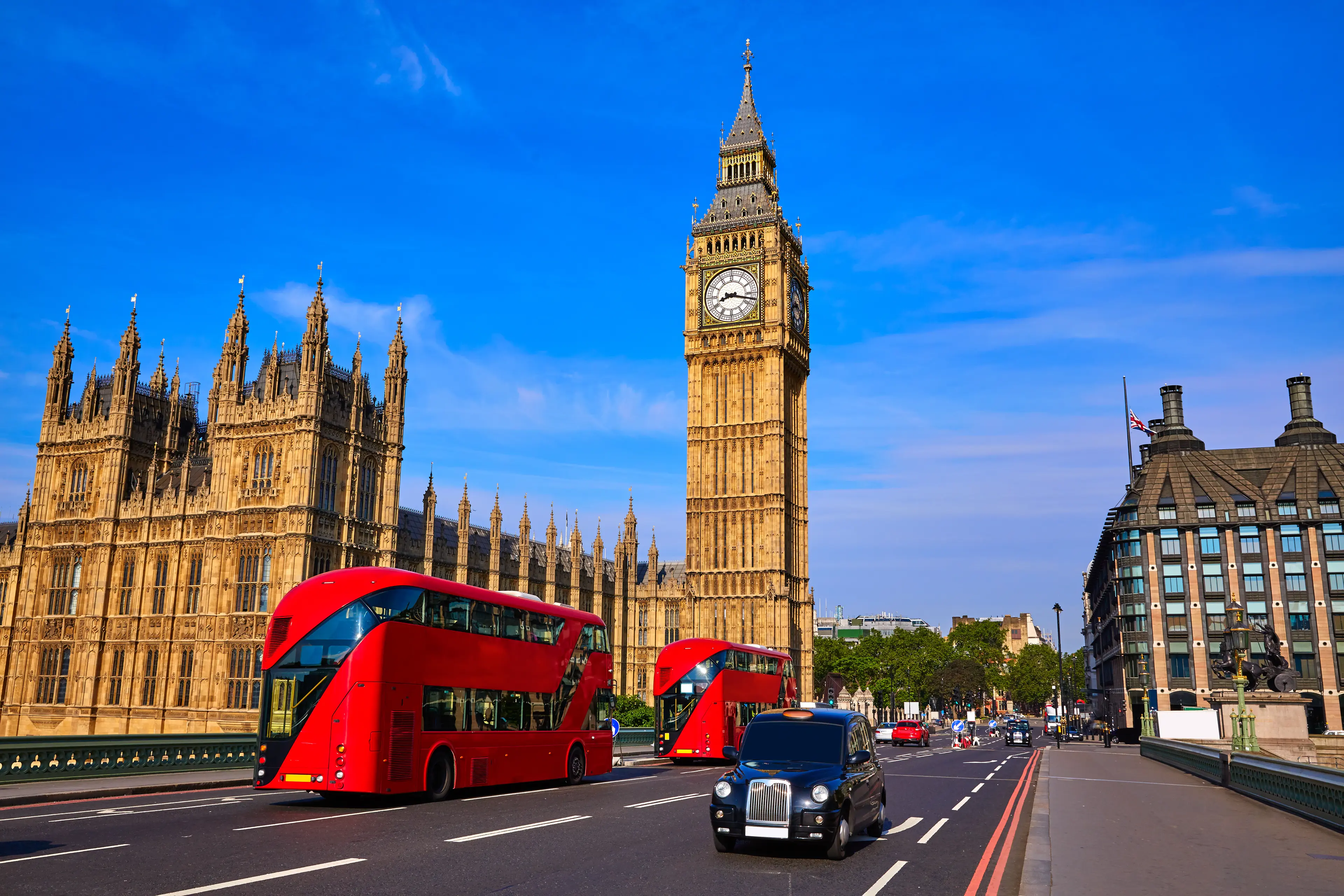
London
The capital of the United Kingdom, known for its iconic landmarks like the Big Ben, London Eye, and the Buckingham Palace.